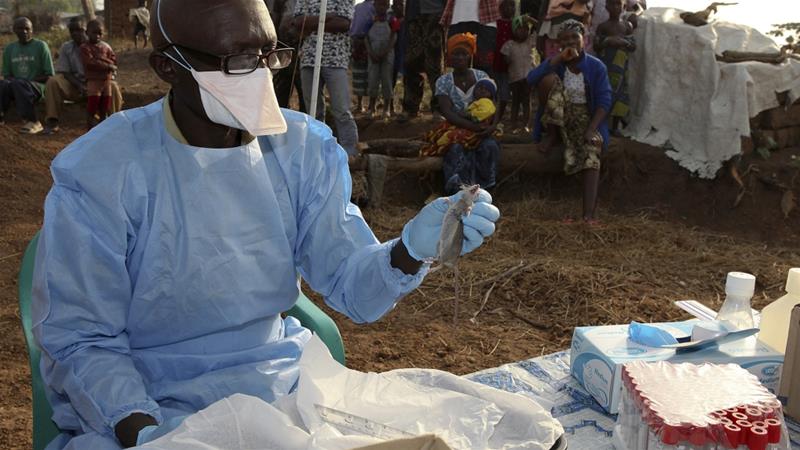
The Nigeria Centre for Disease Control (NCDC) yesterday said 103 people have died of Lassa fever since its outbreak last December 30.
The figure is from 16 states, namely: Ondo, Edo, Ebonyi, Kano, Kogi, Kaduna, Taraba, Plateau, Bauchi, Enugu, Abia, Benue, Borno, Gombe, Sokoto and Katsina.
The number of confirmed cases this year stands at 586, NCDC said.
The report, released yesterday in Abuja, says Edo has the highest burden of confirmed cases at 35 per cent, followed by Ondo at 32 per cent, and Ebonyi at six per cent.
In total for this year, 26 states have recorded at least one confirmed case across 101 local government areas.
The report says: “Cumulatively from week one to week 07, 2020, 103 deaths have been reported with a case fatality rate (CFR) of 17.6 per cent which is lower than the CFR for the same period in 2019 (21.1 per cent).
“The predominant age group affected is 21-30 years (range: <1 to 78 years, median age: 33 years). The male to female ratio for confirmed cases is 1:1.2.
“The number of suspected cases has significantly increased compared to that reported for the same period in 2019.”
The report adds that two new healthcare workers were affected in Bauchi and Katsina states in reporting week 07.
The Lagos State Government yesterday confirmed a case of Lassa fever outbreak in the state, saying the patient has been isolated.
Health Commissioner Prof. Akin Abayomi said in a statement that the patient was in isolation ward at the Lagos University Teaching Hospital (LUTH), Idi-Araba.
He said the government, in collaboration with the Federal Ministry of Health and the NCDC, was working to stem the spread of the disease.
“The Ministry of Health, through Epidemiology, Biosecurity and Global Health Directorate, is carrying out ‘contact tracing’ to determine those who may have been infected in line with the international standards, while we beef up our other surveillance strategies,” Abayomi said.
The commissioner urged health workers, as well as citizens to report a suspected case or cases of the disease to the nearest government-approved health facility, the Ministry of Health or call the emergency operation centre lines: 08023169485, 08033565529 and 08052817243.
The commission said the confirmed index had contact with 63 people since his arrival in Lagos from Ebonyi.
According to him, he had contact with people at the Nigerian Law School, the Nigerian Air Force Clinic and LUTH.
“They are all being monitored. If they develop any symptom of Lassa fever, we will pick them up early and isolate them so that we can break the circle of transmission,” he said.
The commissioner, explaining how the index case was identified, said that the man, who came from Ebonyi for a programme at the Law School, had been unwell.
According to him, he was treated at the Law School Clinic for malaria but he did not recover.
“He was then referred to the Nigeria Air Force Clinic, Onikan, where he was further managed and was referred to LUTH when there was no improvement,” he said.
Abayomi said he was suspected to have Lassa fever based on his point of origin and his non-response to standard treatment for malaria and typhoid.
“The test was confirmed as positive on February 17, and he was immediately transferred to the Isolation Containment Facility in LUTH,” he said.
This as the West African Postgraduate College of Medical Laboratory Science (WAPCMLS) said Nigeria has the capacity to contain any unforeseen outbreak of the coronavirus.
Addressing reporters on the planned induction of fellows and the 2020 annual congress of the college billed for February 21 to 23, Chairman of the Steering Board of WAPCMLS, Dr Godswill Okara, observed that should the coronavirus (COVID-19) come to Nigeria, the country has the capacity, personnel and designated facilities to respond appropriately.
Also, a pharmacist, Prof. Peace Babalola, advised the Federal Government to move from diagnosing coronavirus (Covid -19) to discovering curative drugs or vaccines for it and other viral diseases.
The Vice-Chancellor of Chrisland University, Abeokuta, Ogun State, said the country should not wait until emergencies come.
She urged the Federal Government to commit more resources to the NCDC to enable it to tackle health emergencies.
She noted that most drugs in use in Nigeria and Africa were manufactured with Caucasians as a test case during the preparation and trial processes, saying this informed why there exist cases of adverse reactions and low or efficacy because Africans are genetically different from the Caucasians.
She said it would take between 10 and 15 years to evolve curative drugs or vaccines for any disease, stressing that the financial implication is also gargantuan.
Babalola said it would take between $1 billion to $2 billion investment in drug research to discover therapeutic drug or vaccines for an ailment such as the coronavirus.

